Mirziyoyev and Scholz push for closer industrial partnership between Uzbekistan and German businesses
In Samarkand, a meeting was held between the leaders of Uzbekistan and Germany with representatives from the business sectors of both countries. The leaders also inaugurated a joint School for Management Training.
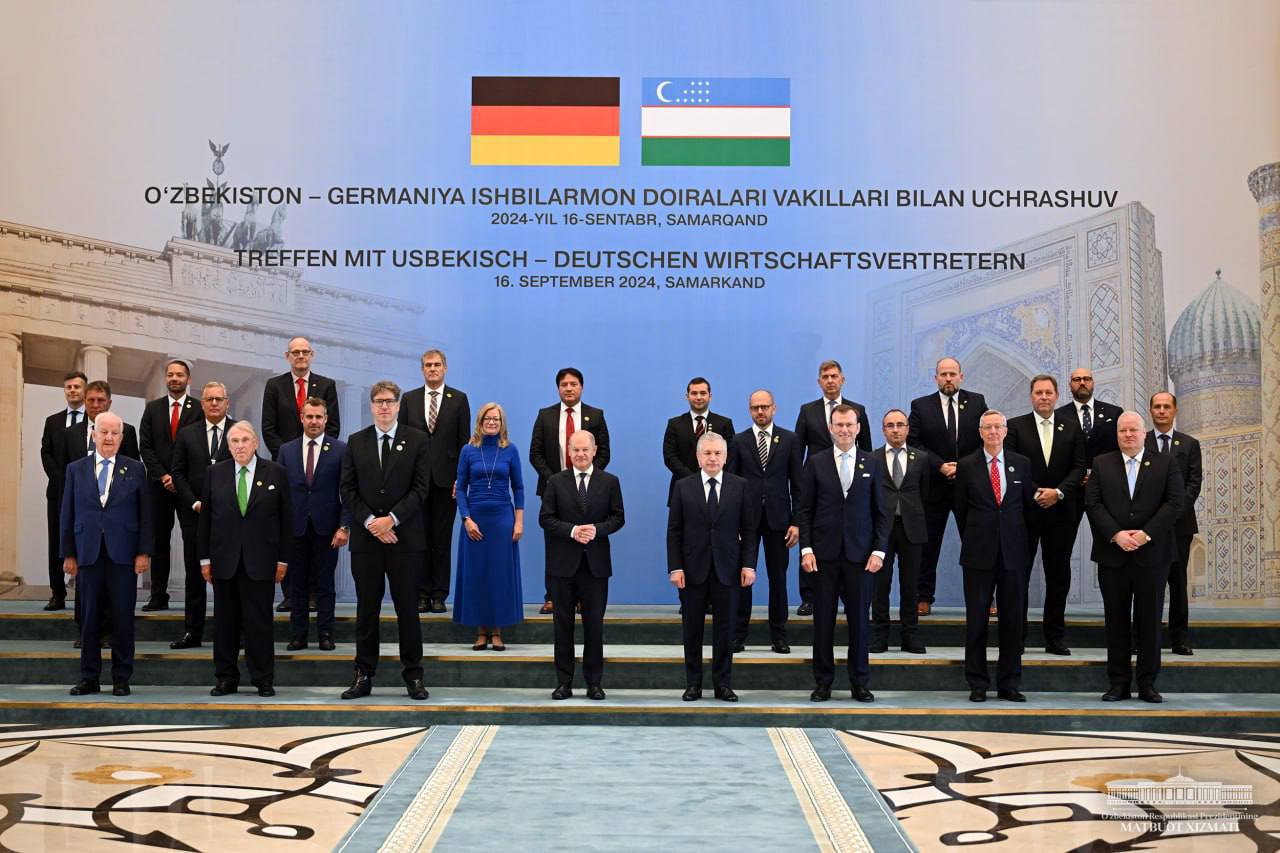
On September 16, President of Uzbekistan Shavkat Mirziyoyev and German Chancellor Olaf Scholz met with representatives of leading companies and banks from both nations in Samarkand.
The event was attended by Michael Kellner, Parliamentary State Secretary of the German Ministry for Economic Affairs and Climate Protection, Michael Harms, Managing Director of the German Committee on Eastern European Economic Relations, as well as leaders and representatives from prominent companies such as "KNAUF," "CLAAS," "Mangold Consulting," "Gunter Papenburg," "Siemens Energy," "Linde Group," "Aurubis," "FALK PORSCHE," "Metso," "Edison Technologies," "Ernst Klett," "Siemens Healthineers," "Herrenknecht," "DB Engineering & Consulting," "Svevind Energy Group," "Rhenus," "HMS Bergbau," "Textima," and banks like "KfW Development Bank" and "AKA Bank."
The President of Uzbekistan warmly welcomed the participants of the meeting, emphasizing the symbolic significance of holding the event in the historic city of Samarkand.
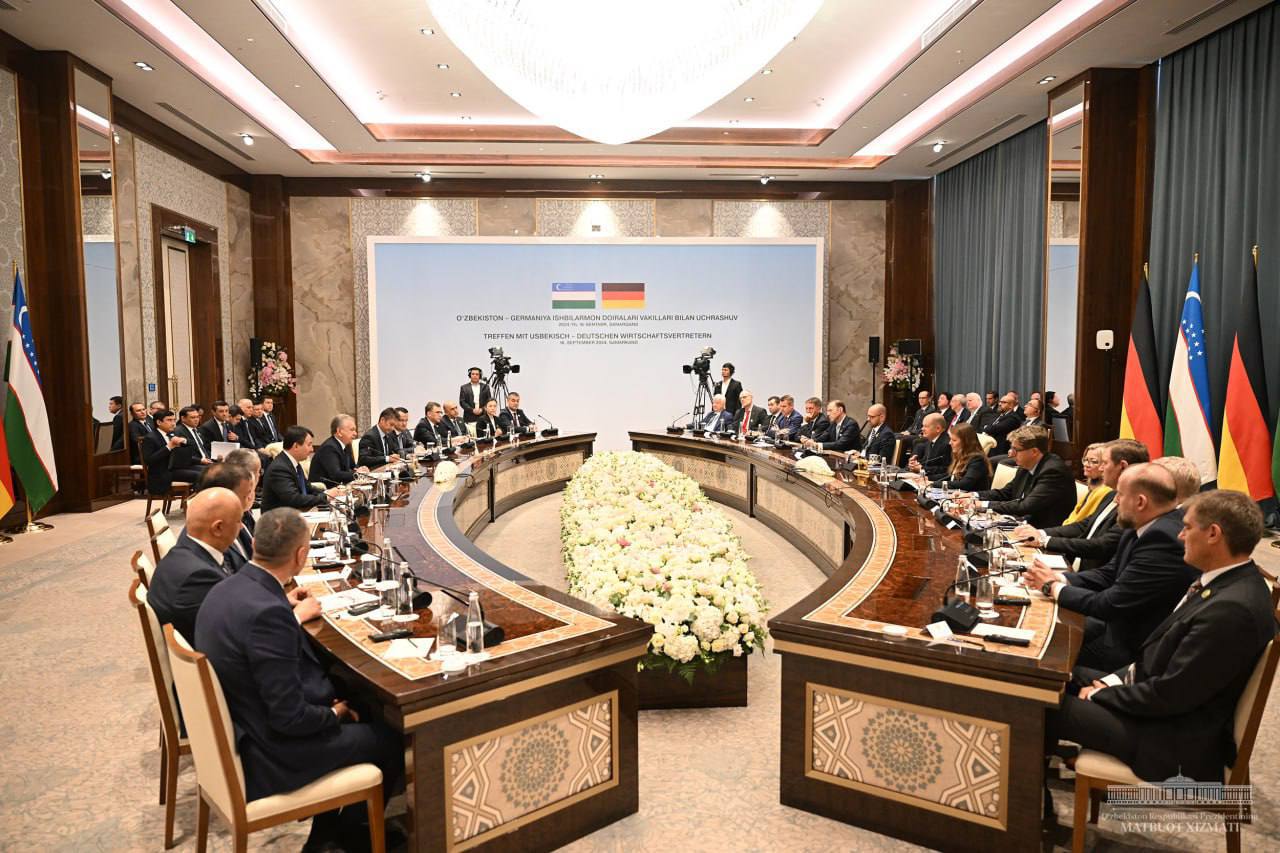
The highly productive high-level negotiations held the previous day were praised. It was noted that the main priorities of the New Uzbekistan’s economic sectors’ deep transformation and modernization were supported.
One of the main outcomes of the meeting was the agreement to develop comprehensive measures to support and accelerate joint investment projects and trade agreements within the framework of the strategic program for Industrial and Technological Partnership with Germany’s leading companies and banks.
Key areas of mutually beneficial partnership were outlined with the active and practical participation of the business circles from both Uzbekistan and Germany. These include industrial cooperation in "green energy," the chemical industry, "green hydrogen" production, mechanical engineering, electrical engineering, textiles, pharmaceuticals, and other sectors.
Additionally, the participation of German companies in the development and deep processing of critical mineral resource deposits, with the aim of producing high value-added products for export to Germany and other third countries, was identified as a promising direction.
Cooperation will also focus on the modernization of energy, transport-communication, utility, and tourism infrastructure facilities, participation in the privatization program of industrial and service enterprises, as well as the implementation of socially significant projects in healthcare, education, and ecology.
During the meeting, Shavkat Mirziyoyev paid special attention to the importance of establishing close cooperation between German businesses and major companies in Uzbekistan.
In this regard, he emphasized the need to continue developing new initiatives and implementing joint projects in areas such as the production of construction materials, metallurgy, energy, chemicals, transport infrastructure, agriculture and engineering, medicine, and other sectors.
"We have organized our meeting in a new format. On the Uzbek side, representatives of the private sector, which has become a reliable partner for German businesses in recent years, are primarily participating," said Shavkat Mirziyoyev.
In conclusion, the President of Uzbekistan wished all participants great success in implementing the plans discussed.
For his part, German Chancellor Olaf Scholz highly praised the steadily developing multifaceted relations with Uzbekistan, emphasized the importance of strengthening existing partnerships, and called on representatives of German business circles to actively participate in joint projects and initiatives.
Following the meeting, Shavkat Mirziyoyev and Olaf Scholz participated in the opening ceremony of the joint School for Management Training.
The project was implemented in cooperation with the Academy of Public Administration under the President of Uzbekistan and the Agency for the Development of Public Service, together with the Hanns Seidel Foundation and the Bavarian School of Public Administration.
Officials provided detailed information about the project to the leaders via video conference. The main objectives and tasks of the school are to enhance the capacity of management personnel in the regions of Uzbekistan in terms of socio-economic development, attracting foreign investments, and mastering advanced technologies.
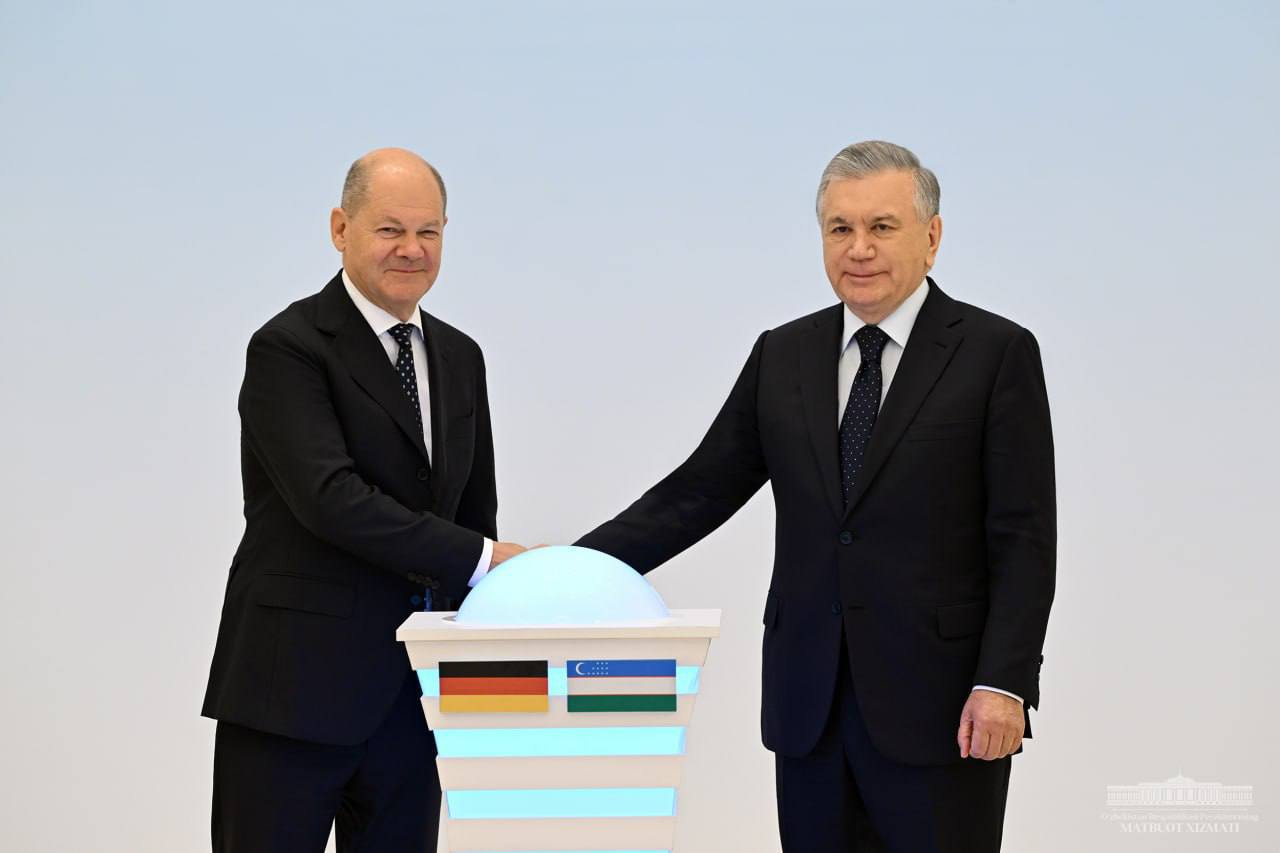
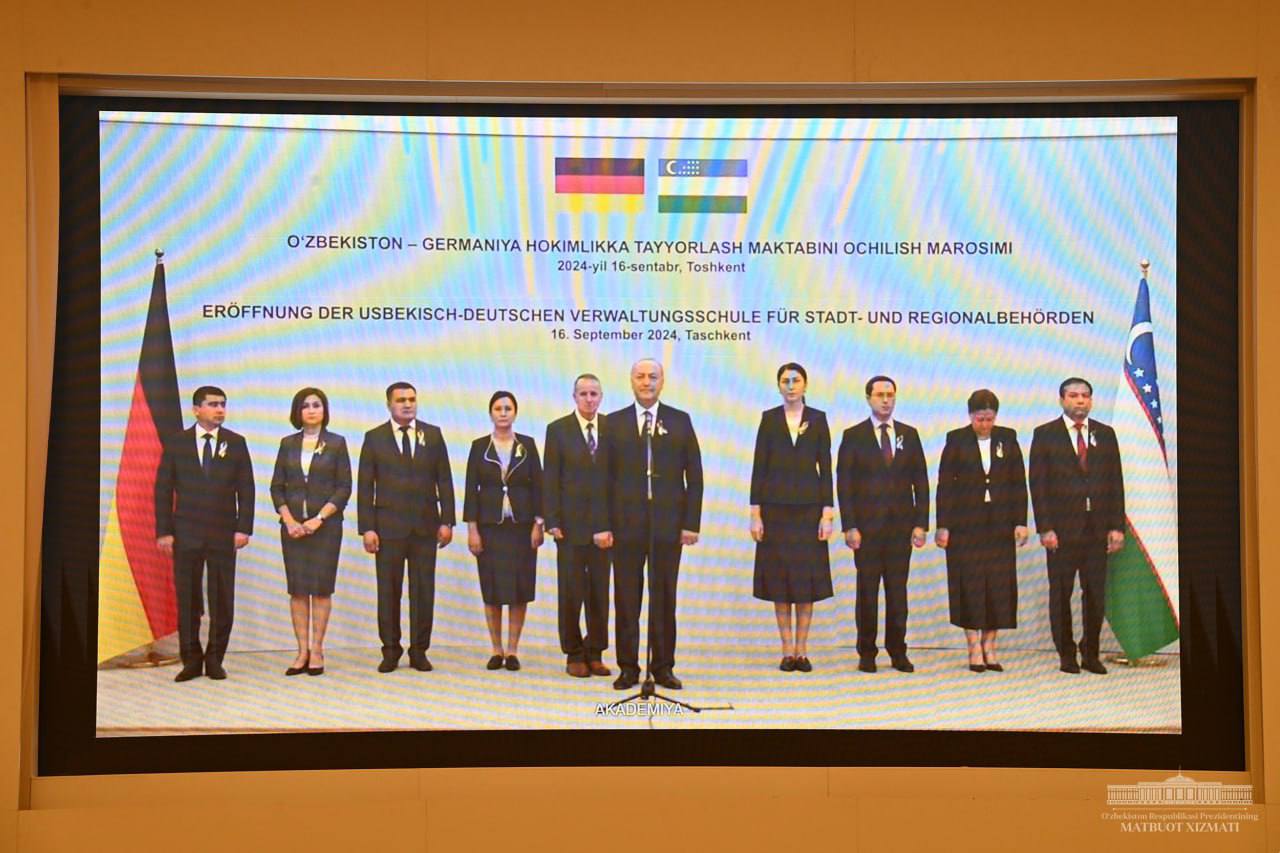
Related News
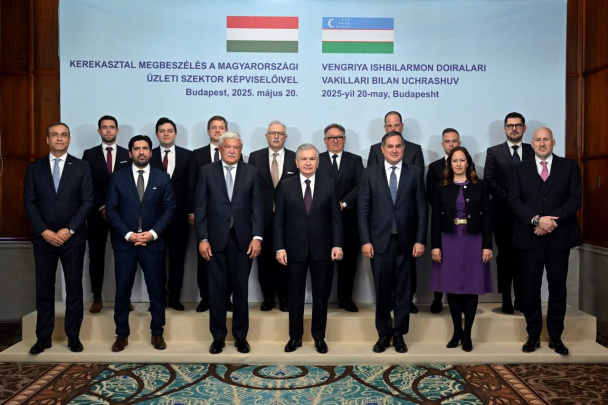
17:28 / 20.05.2025
Shavkat Mirziyoyev meets with Hungarian business leaders to discuss new investment projects
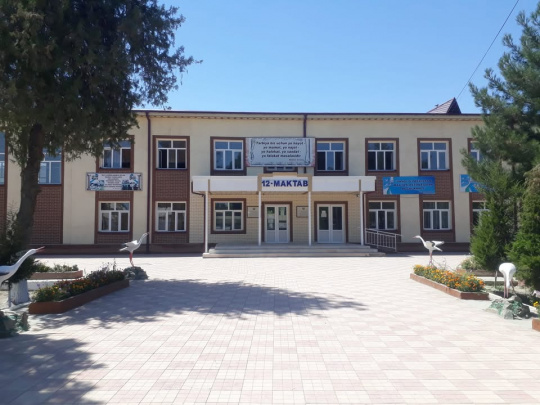
11:51 / 17.05.2025
School fight in Samarkand ends in tragedy: One student dead, another hospitalized
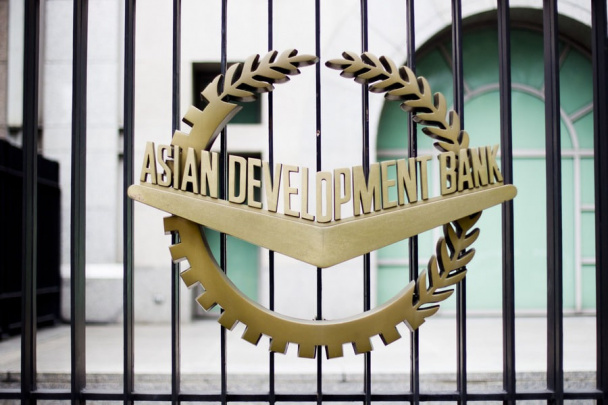
16:24 / 10.05.2025
Uzbekistan and ADB to launch 23 new projects worth $3.6 billion
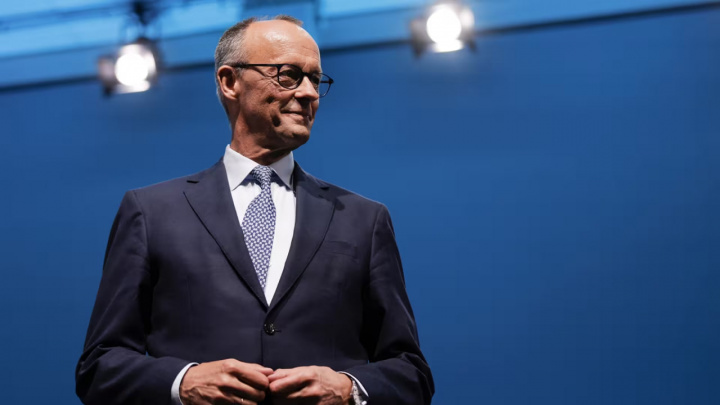
07:41 / 08.05.2025



